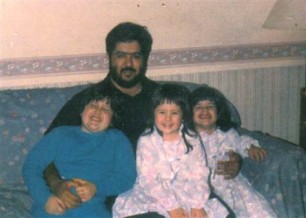Shawki was arrested in October 2004, along with his wife, by US soldiers at their home and was held incommunicado for two weeks. During this period of secret detention, he was subjected to severe torture, including electric shocks and simulations of drowning. Later, he was transferred to Camp Cropper - today known as Karkh Prison- and then to Abu Ghraib Prison - reopened as Baghdad Central Prison- with a period of several months of detention in the US army base Camp Bucca close to Umm Qasr, South Iraq. He was handed over to the Iraqi authorities in July 2011 and was taken back to Karkh Prison.
While still being held in US-controlled facilities, he was sentenced to 15 years imprisonment for illegal entry to Iraq following an utterly unfair trial before the Central Criminal Court in Iraq on 24 June 2010 on the basis of confessions obtained under torture. He was able to submit an appeal and the court of cassation reduced at the beginning of 2011 to 7 years imprisonment without counting the years already spent in prison.
At the end of November and the beginning of December 2012, Mr Omar was taken in for new interrogation sessions, again about his alleged implication in terrorist networks. He was subjected to severe beatings and was threatened by security personnel that he would be transferred to a secret detention facility where he would suffer an even harsher treatment. In January 2013, around 25 detainees of Karkh Prison were transferred out of the prison and their fate and whereabouts remain unknown at the time.
After an ICRC visit to Karkh prison on 6 May 2013, all prisoners detained in the same section as Shawki Omar were reportedly moved to either other detention facilities or other sections of the same prison – possibly in retaliation for having spoken to the ICRC. The victim was transferred to the prison section where common law criminals are held, where the situation is said to be significantly more dangerous for foreigners and in which it was reported that some of detainees were murdered by guards. Despite several requests for a change of his situation, he is still imprisoned in very bad conditions, with few contacts allowed with his family and lawyer.
Today, Alkarama asked the UN Working Group on Arbitrary Detention to issue an Opinion as to the arbitrary nature of Shawki Omar's detention and request the Iraqi authorities end his arbitrary detention by releasing him immediately. As his health condition is worsening, he is still at risk of being subjected to torture and his detention is devoid of any legal basis now for more than 2 years and 6 months.
 Algeria
Algeria Bahrain
Bahrain Djibouti
Djibouti Egypt
Egypt Iraq
Iraq Palestine/Israel
Palestine/Israel Jordan
Jordan Kuwait
Kuwait Lebanon
Lebanon Libya
Libya Mauritania
Mauritania Morocco
Morocco Oman
Oman Qatar
Qatar Saudi Arabia
Saudi Arabia Sudan
Sudan Syria
Syria Tunisia
Tunisia United Arab Emirates
United Arab Emirates Yemen
Yemen Other Countries
Other Countries


